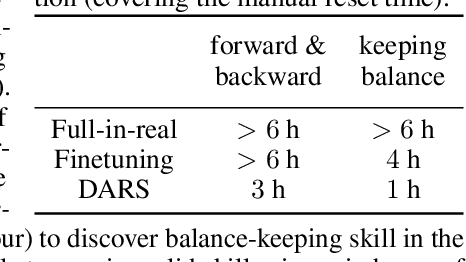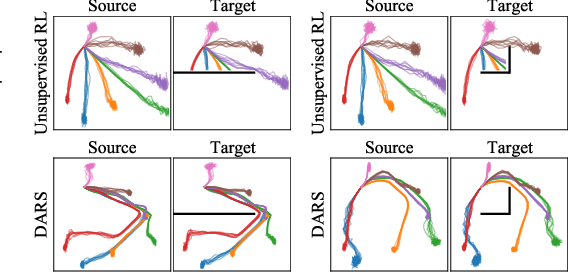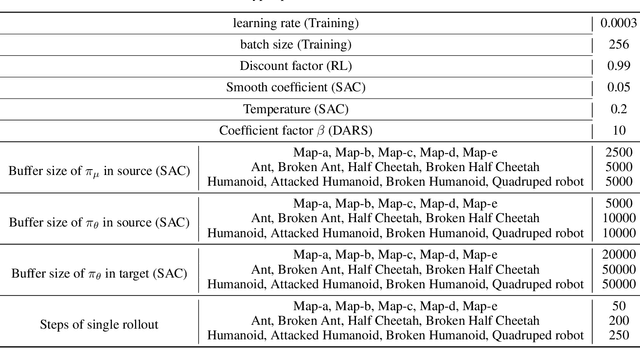Qiangxing Tian
Unsupervised Domain Adaptation with Dynamics-Aware Rewards in Reinforcement Learning
Oct 26, 2021



Abstract:Unsupervised reinforcement learning aims to acquire skills without prior goal representations, where an agent automatically explores an open-ended environment to represent goals and learn the goal-conditioned policy. However, this procedure is often time-consuming, limiting the rollout in some potentially expensive target environments. The intuitive approach of training in another interaction-rich environment disrupts the reproducibility of trained skills in the target environment due to the dynamics shifts and thus inhibits direct transferring. Assuming free access to a source environment, we propose an unsupervised domain adaptation method to identify and acquire skills across dynamics. Particularly, we introduce a KL regularized objective to encourage emergence of skills, rewarding the agent for both discovering skills and aligning its behaviors respecting dynamics shifts. This suggests that both dynamics (source and target) shape the reward to facilitate the learning of adaptive skills. We also conduct empirical experiments to demonstrate that our method can effectively learn skills that can be smoothly deployed in target.
Learn Goal-Conditioned Policy with Intrinsic Motivation for Deep Reinforcement Learning
Apr 11, 2021



Abstract:It is of significance for an agent to learn a widely applicable and general-purpose policy that can achieve diverse goals including images and text descriptions. Considering such perceptually-specific goals, the frontier of deep reinforcement learning research is to learn a goal-conditioned policy without hand-crafted rewards. To learn this kind of policy, recent works usually take as the reward the non-parametric distance to a given goal in an explicit embedding space. From a different viewpoint, we propose a novel unsupervised learning approach named goal-conditioned policy with intrinsic motivation (GPIM), which jointly learns both an abstract-level policy and a goal-conditioned policy. The abstract-level policy is conditioned on a latent variable to optimize a discriminator and discovers diverse states that are further rendered into perceptually-specific goals for the goal-conditioned policy. The learned discriminator serves as an intrinsic reward function for the goal-conditioned policy to imitate the trajectory induced by the abstract-level policy. Experiments on various robotic tasks demonstrate the effectiveness and efficiency of our proposed GPIM method which substantially outperforms prior techniques.
 Add to Chrome
Add to Chrome Add to Firefox
Add to Firefox Add to Edge
Add to Edge